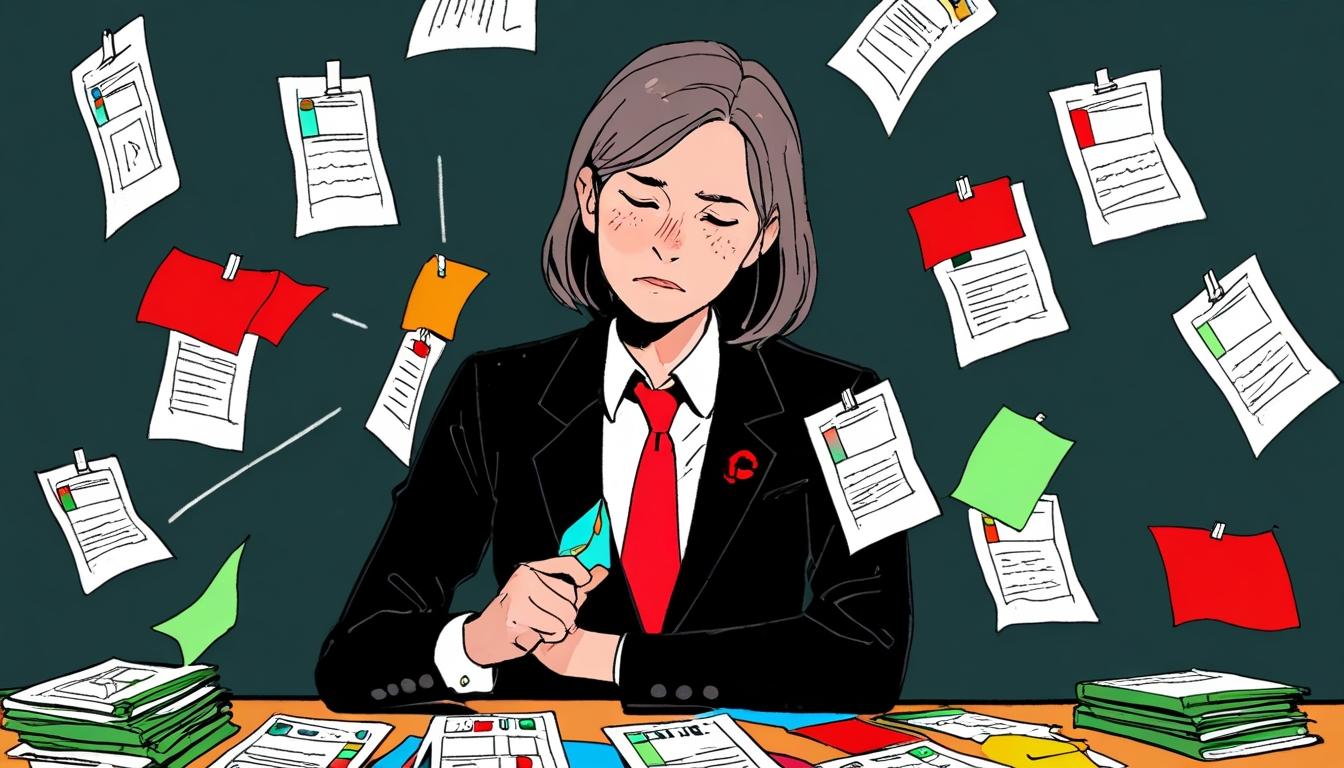Changes to Ofsted inspections have come into sharper focus following the tragic death of Ruth Perry, a headteacher who took her own life after her school's rating was downgraded by the education watchdog. Addressing the issue, the National Association of Head Teachers (NAHT) discussed Ofsted's proposed report cards at their annual conference in Harrogate and voiced significant concerns regarding the potential impact on school staff's mental health.
Ofsted’s inspection proposals, introduced in February, suggest a new grading system for schools in England that would evaluate eight to ten areas of school provision using a colour-coded five-point scale. Ratings would range from "red," indicating areas "causing concern," to various shades of green — "secure," "strong," and "exemplary." This method has sparked fears that it would reinforce a “high-stakes accountability culture” in schools.
During the conference, held over the weekend, delegates passed a motion urging union leaders to oppose these report cards. They also called for a thorough exploration of "legal and industrial options" aimed at safeguarding the mental and physical well-being of school leaders and their staff. This follows the NAHT's announcement of legal action against Ofsted, claiming that the watchdog has not conducted adequate consultations that address the potential repercussions of their inspection proposals on mental health.
The increased scrutiny of Ofsted's practices comes after Ruth Perry's death in January 2023, when her school, Caversham Primary in Reading, was downgraded from an "outstanding" to an "inadequate" rating due to safeguarding concerns. The government's response to such incidents included the decision to eliminate headline grades for overall effectiveness, a move prompted by growing criticism of Ofsted's inspection methods.
Moreover, delegate Martin Vayro, who proposed the motion at the conference, described the report card system as a “huge mistake,” asserting it would neither enhance the protection of school leaders nor clarify matters for parents. He urged Ofsted to “slow down, listen to us, work with us, remember Ruth” in the evaluation process.
Delegate Donna Taylor-Smith from Rochdale shared her own distressing experience regarding a sudden re-inspection of her primary school, calling it one of the most traumatic periods of her career. She recounted the emotional impact of the inspections, stating, “My staff were shattered and I was broken. We spent months recovering from the emotional wreckage. PTSD, severe insomnia, burnout. For me personally, this has caused damage that feels irreparable.”
In response to these substantial concerns, an Ofsted spokeswoman emphasised the importance of supporting the mental health of those under their scrutiny. She mentioned that feedback from their inspection tests has revealed positive responses to their evolving proposals. Furthermore, Ofsted's legal team indicated that they would robustly challenge any claims made by the NAHT, asserting that the union's concerns lack merit.
The ongoing debate regarding Ofsted's inspection framework encapsulates a broader conversation about accountability in education and the well-being of school staff, prompting stakeholders to seek a balance between effective oversight and mental health considerations.
Source: Noah Wire Services
